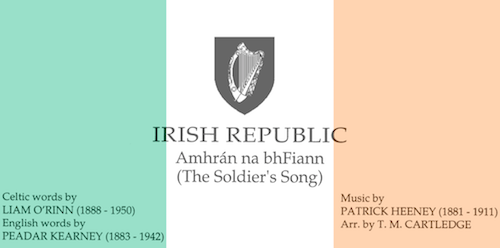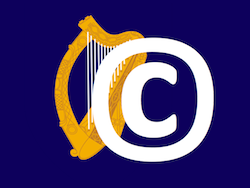
I was on the Marian Finucane show on RTE Radio 1 yesterday morning (listen here), discussing copyright in the National Anthem. The immediate context of the discussion was Senator Mark Daly‘s National Anthem (Protection of Copyright and Related Rights) (Amendment) Bill 2016 (reviving a Bill that he had introduced into the last Seanad earlier in the year). The story of the copyright in the national anthem is a fascinating one, with many legal twists and turns, which I will discuss in this post and the next (update: this post and the next were originally one post; but I have divided that post into two; in this post I discuss the copyright issues around the music and the English language version of the words of the anthem; in the next post, I will discuss the issues around the Irish language version). Once I have brought that story of these various versions of the anthem up to date, I will discuss the possible impact of Senator Daly’s Bill in a further post.
Working together in 1907, the music of the national anthem was composed by Patrick Heeney (1881-1911) and the English lyrics of “The Soldier’s Song” were composed by Peadar Kearney (1883-1942) [His first draft, written on copybook paper, sold at auction in 2006 for €760,000].…



 At the
At the 
